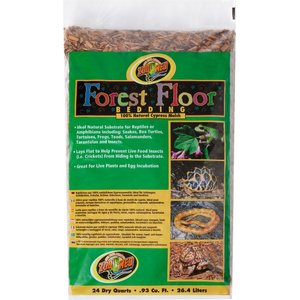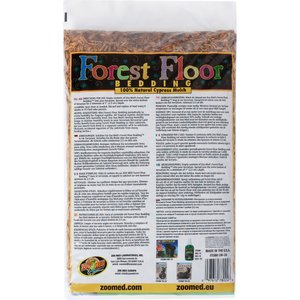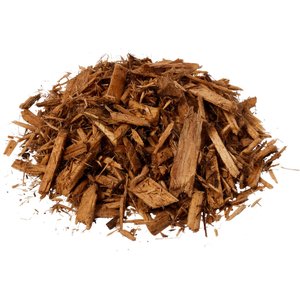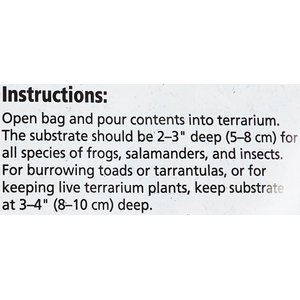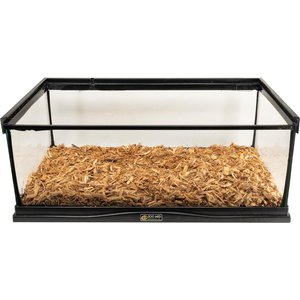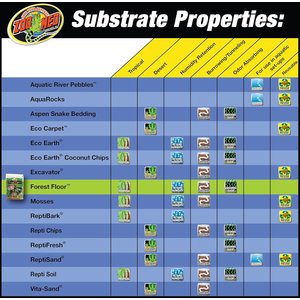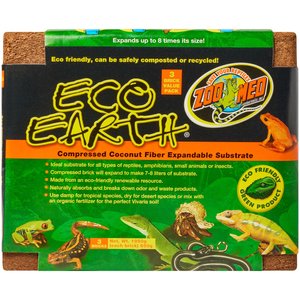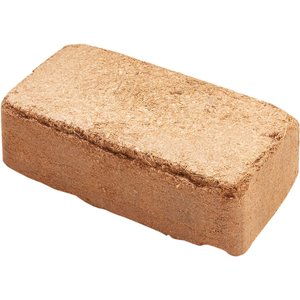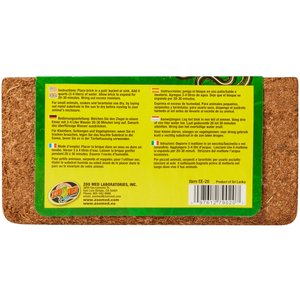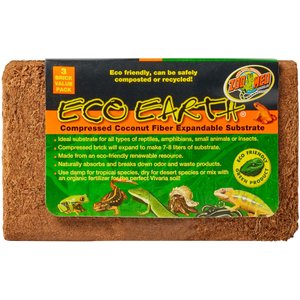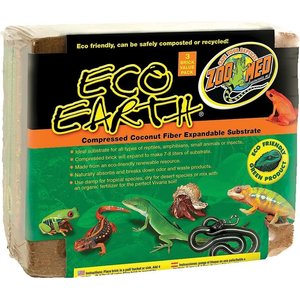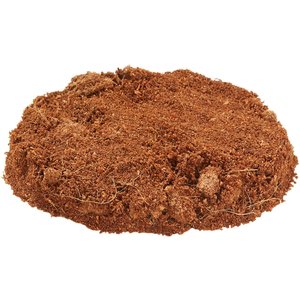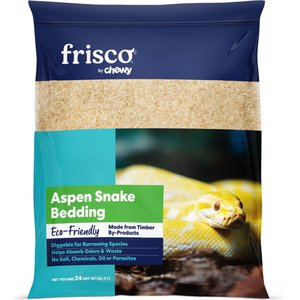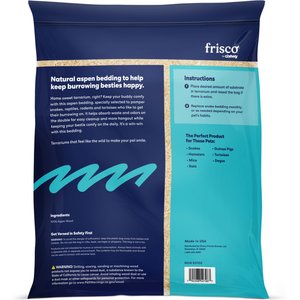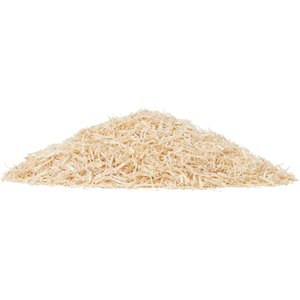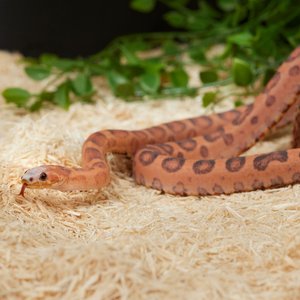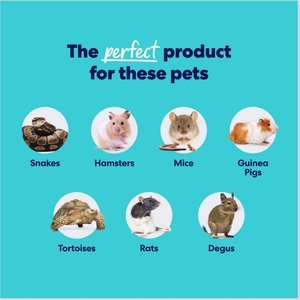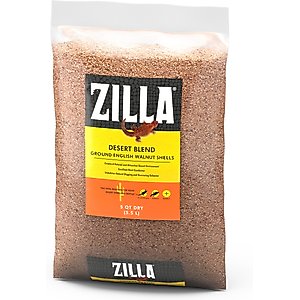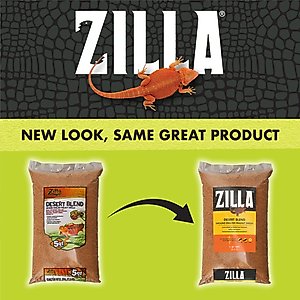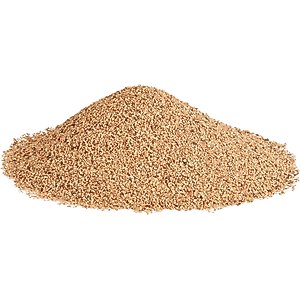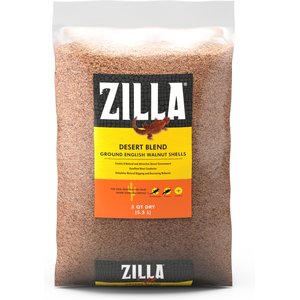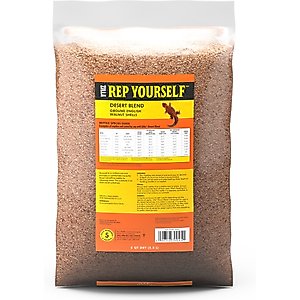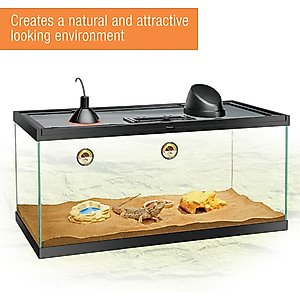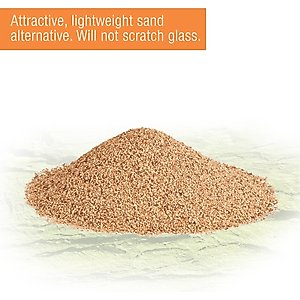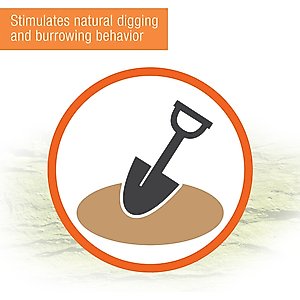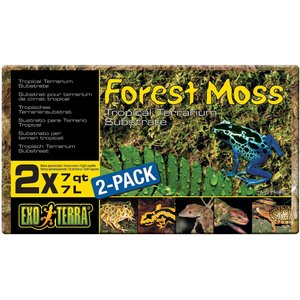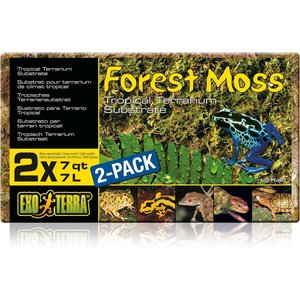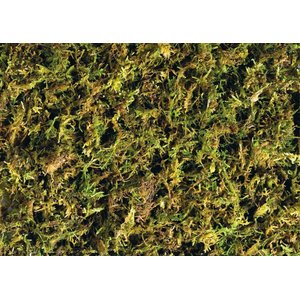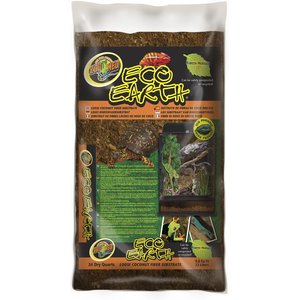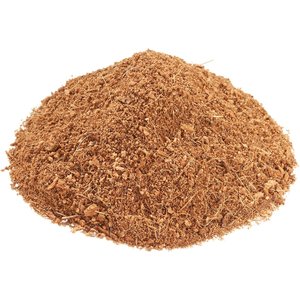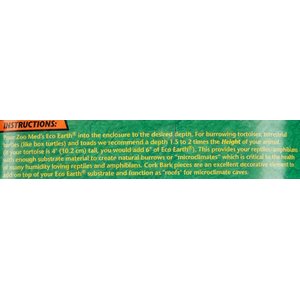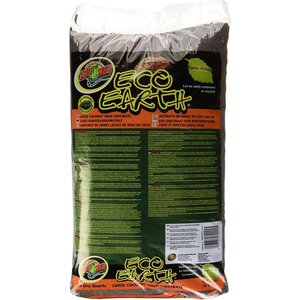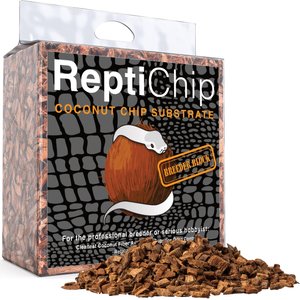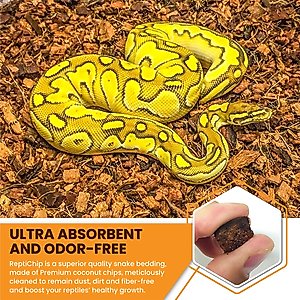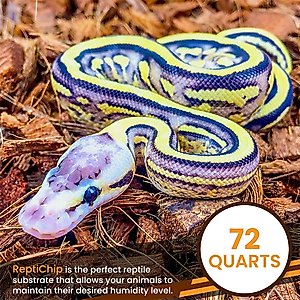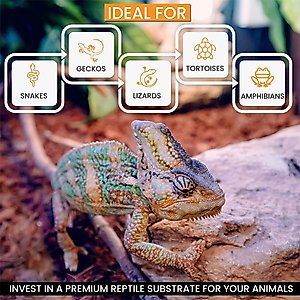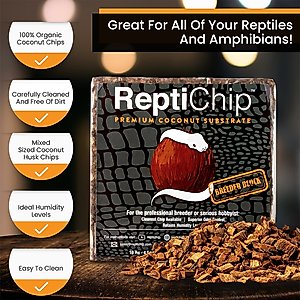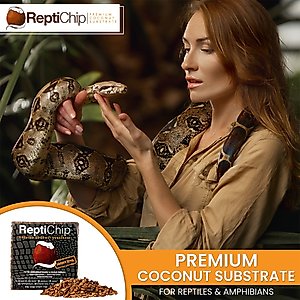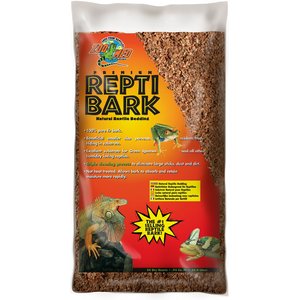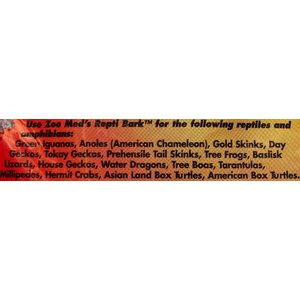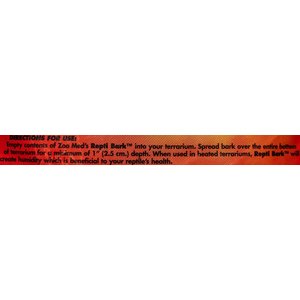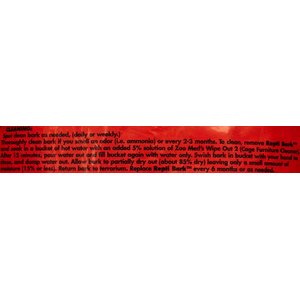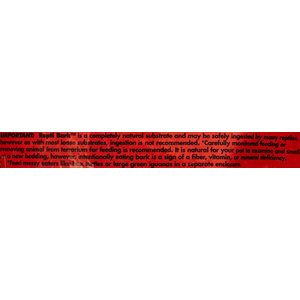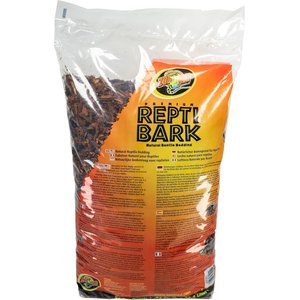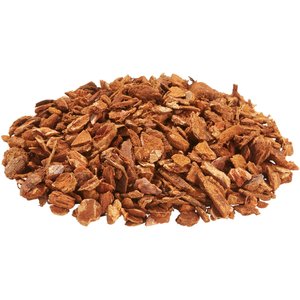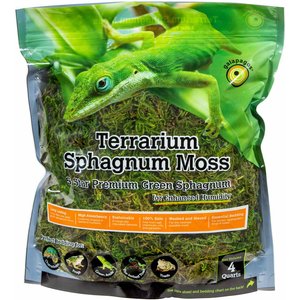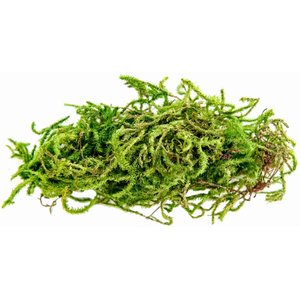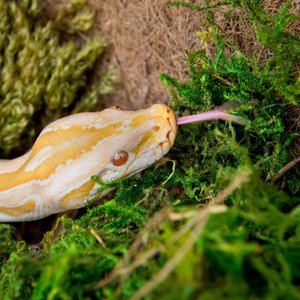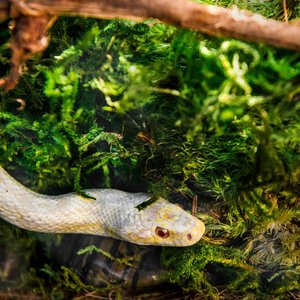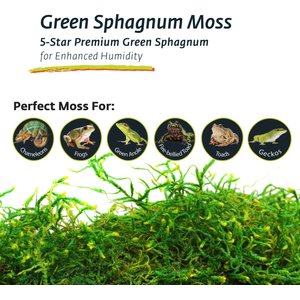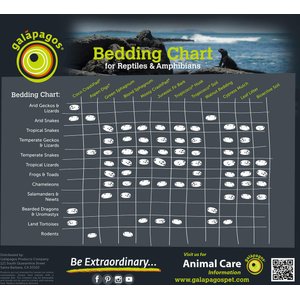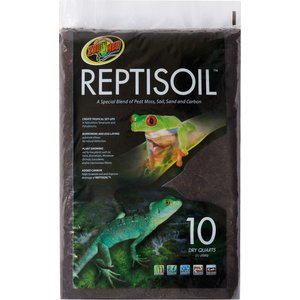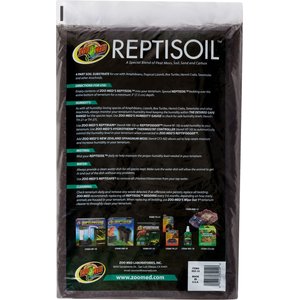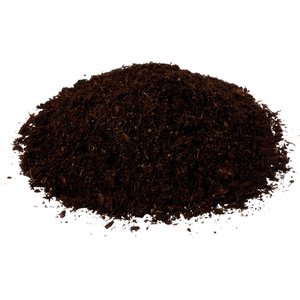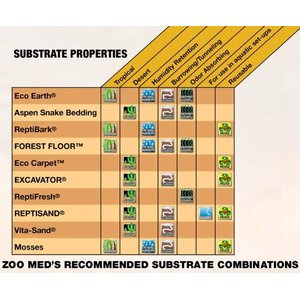The 10 Best Soils for Reptiles
Jump to the list
Zoo Med Forest Floor Natural Cypress Mulch Reptile Bedding, 24-qt bag
$29.98Chewy Price
Promo, New Customers Only: Spend $49+, Get $20 eGift Card
Our ratings
Absorbency
4.5/5
GreatDust-Free
4.6/5
ExcellentNatural Ingredients
4.5/5
GreatOdor Control
4.5/5
GreatZoo Med Eco Earth Compressed Coconut Fiber Expandable Reptile Substrate, 3 count
$9.99Chewy Price
($3.33/ea)
Promo, New Customers Only: Spend $49+, Get $20 eGift Card
Our ratings
Absorbency
4.6/5
ExcellentDust-Free
4.4/5
GreatNatural Ingredients
4.6/5
ExcellentOdor Control
4.5/5
GreatFrisco Aspen Snake Bedding, 24-qt
$23.18Chewy Price
Promo, New Customers Only: Spend $49+, Get $20 eGift Card
Our ratings
Absorbency
4.7/5
ExcellentDust-Free
4.8/5
ExcellentNatural Ingredients
4.6/5
ExcellentOdor Control
4.7/5
ExcellentZilla Ground English Walnut Shell Reptile Bedding, 5-qt bag
$8.96Chewy Price
Promo, New Customers Only: Spend $49+, Get $20 eGift Card
Our ratings
Absorbency
4.3/5
GreatDust-Free
4.3/5
GreatNatural Ingredients
4.3/5
GreatOdor Control
4.4/5
GreatExo Terra Forest Moss Tropical Terrarium Reptile Substrate, 7-qt, 2 count
$10.99Chewy Price
Promo, New Customers Only: Spend $49+, Get $20 eGift Card
Our ratings
Absorbency
4.6/5
ExcellentDust-Free
4.4/5
GreatNatural Ingredients
4.6/5
ExcellentOdor Control
4.6/5
ExcellentZoo Med Eco Earth Loose Coconut Fiber Reptile Substrate, 24-qt bag
$25.98Chewy Price
Promo, New Customers Only: Spend $49+, Get $20 eGift Card
Our ratings
Absorbency
4.7/5
ExcellentDust-Free
4.7/5
ExcellentNatural Ingredients
4.7/5
ExcellentOdor Control
4.7/5
ExcellentReptiChip Compressed Coconut Chip Reptile Substrate, 72-qt block
$34.95Chewy Price
Promo, New Customers Only: Spend $49+, Get $20 eGift Card
Our ratings
Absorbency
4.5/5
GreatDust-Free
4.2/5
GreatNatural Ingredients
4.4/5
GreatOdor Control
4.5/5
GreatZoo Med Premium Repti Bark Natural Fir Reptile Bedding, 24-qt bag
$29.98Chewy Price
Promo, New Customers Only: Spend $49+, Get $20 eGift Card
Our ratings
Absorbency
4.6/5
ExcellentDust-Free
4.5/5
GreatNatural Ingredients
4.6/5
ExcellentOdor Control
4.6/5
ExcellentGalapagos Sphagnum Reptile, Amphibian & Insect Terrarium Moss, Fresh Green, 4-qt bag
$10.99Chewy Price
Promo, New Customers Only: Spend $49+, Get $20 eGift Card
Our ratings
Absorbency
4.3/5
GreatDust-Free
4.6/5
ExcellentNatural Ingredients
4.2/5
GreatOdor Control
4.3/5
GreatZoo Med ReptiSoil Reptile Soil, 10-qt bag
$10.98Chewy Price
Promo, New Customers Only: Spend $49+, Get $20 eGift Card
Our ratings
Absorbency
4.6/5
ExcellentDust-Free
4.5/5
GreatNatural Ingredients
4.6/5
ExcellentOdor Control
4.6/5
Excellent